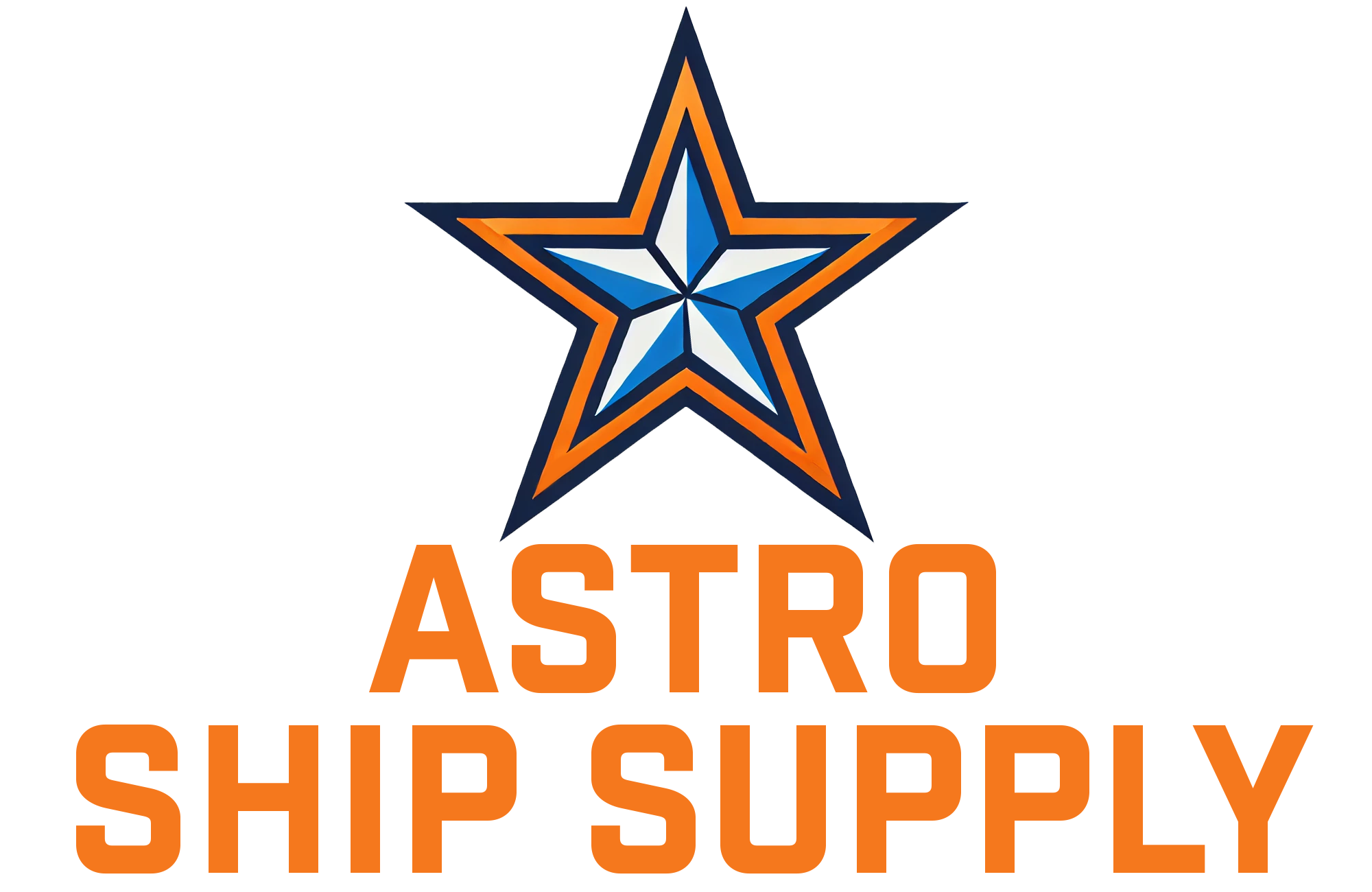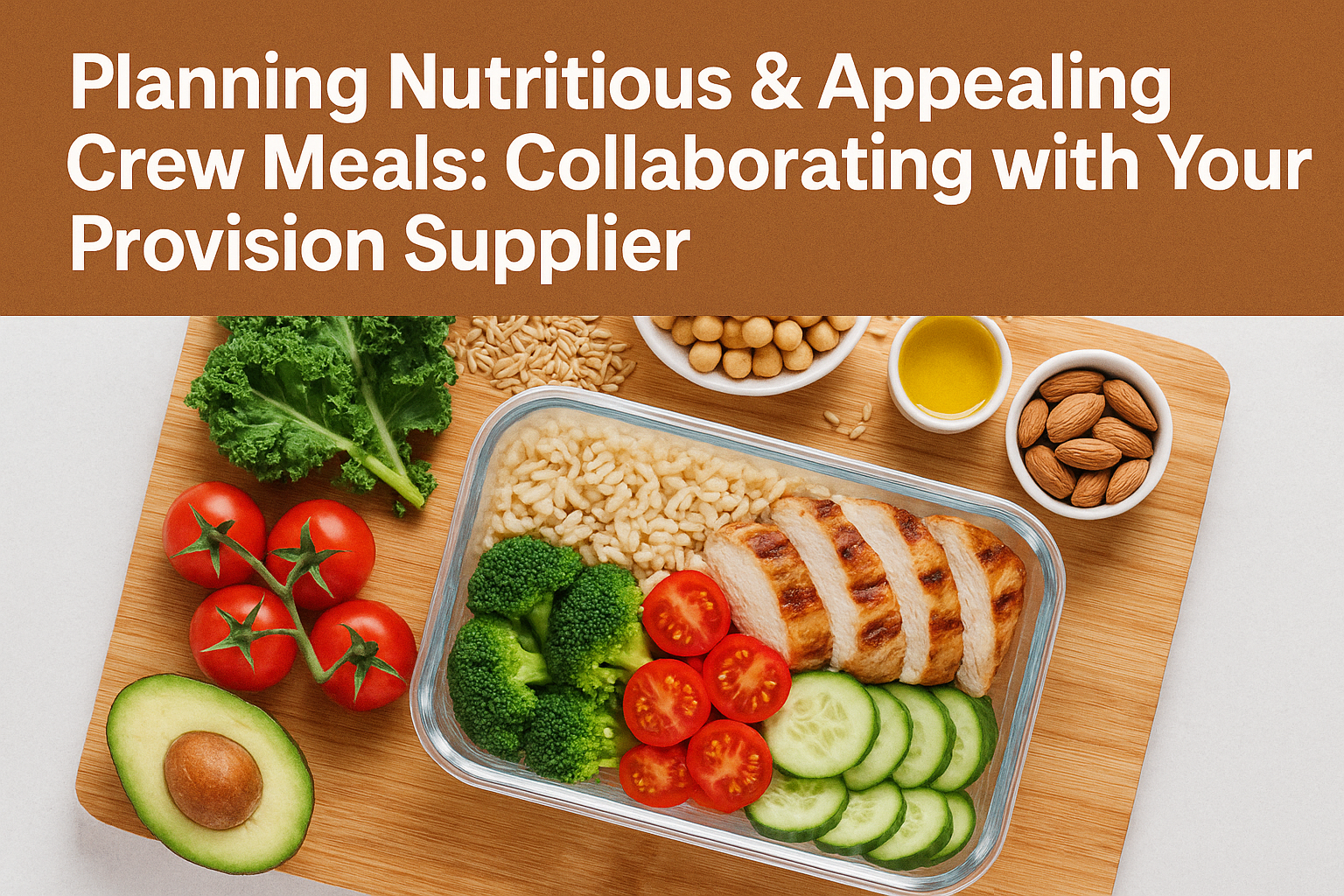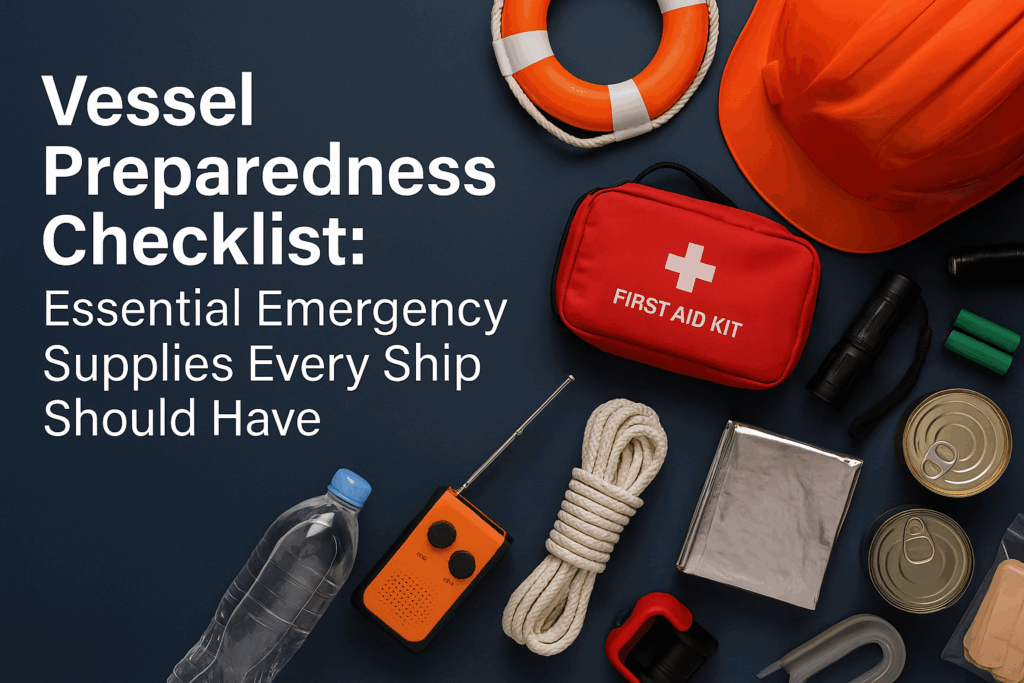The days of merely stocking a ship with basic provisions are long gone. Modern maritime regulations and a heightened awareness of crew welfare have transformed the approach to onboard catering. Today, it’s about creating a sustainable, healthy, and enjoyable dining experience that supports the crew’s demanding work schedule. This comprehensive guide will explore the intricacies of planning nutritious and appealing crew meals, emphasizing the vital role of effective collaboration with your provision supplier, such as Astro Ship Supply, to achieve culinary excellence at sea.
—
The Pillars of Onboard Nutrition: More Than Just Calories
Before diving into supplier collaboration, it’s essential to understand the core principles of crew nutrition. A balanced diet at sea must address several key aspects:
Energy and Performance
Seafarers perform physically demanding tasks and often work irregular hours. Their diet must provide sufficient calories from carbohydrates, healthy fats, and proteins to sustain energy levels throughout their shifts. Lack of proper energy can lead to fatigue, reduced productivity, and an increased risk of accidents.
Immune System Support
Confined spaces and close proximity on a vessel can make crews susceptible to illness. A diet rich in vitamins, minerals, and antioxidants is crucial for boosting the immune system, helping to prevent the spread of common ailments and reducing sick days.
Mental Well-being and Morale
The psychological impact of food cannot be overstated. Varied, tasty, and familiar meals can significantly improve crew morale, reduce monotony, and foster a sense of well-being. Conversely, poor quality or repetitive food can lead to dissatisfaction, stress, and even conflict.
Addressing Dietary Restrictions and Preferences
Modern crews are diverse, comprising individuals from various cultures and with differing dietary needs (e.g., vegetarian, vegan, halal, kosher, gluten-free, allergy-specific). A successful meal plan must accommodate these requirements to ensure inclusivity and crew satisfaction.
—
The Role of Your Provision Supplier: A Strategic Partner, Not Just a Vendor
Your provision supplier is more than just a source of goods; they are a critical extension of your vessel’s operational team. A true partnership with a reputable ship chandlery like Astro Ship Supply offers numerous advantages in achieving your crew meal objectives.
Access to a Wide Range of Quality Products
A top-tier provision supplier will offer a vast inventory of fresh, frozen, dry, and specialty food items. This includes:
- Fresh Produce: Fruits, vegetables, and herbs, often sourced locally to ensure freshness and reduce carbon footprint.
- High-Quality Proteins: A variety of meats (beef, chicken, lamb), seafood, and plant-based alternatives.
- Dairy & Eggs: Essential for breakfasts and cooking.
- Dry Goods: Grains, pasta, pulses, spices, and baking essentials.
- Frozen Goods: Pre-prepared meals, vegetables, and meats for convenience and extended shelf life.
Expertise in Maritime Logistics
Delivering provisions to a ship is vastly different from terrestrial logistics. Experienced suppliers understand the complexities of:
- Port Regulations: Navigating customs, health inspections, and security protocols (e.g., ISPS Code compliance).
- Timely Deliveries: Ensuring provisions arrive precisely when needed, minimizing vessel downtime and avoiding spoilage.
- Temperature Control: Maintaining the cold chain for perishable items from warehouse to vessel.
- Stowage and Handling: Advising on best practices for safe and efficient loading.
Quality Assurance and Compliance
Reputable suppliers adhere to stringent quality and safety standards, such as:
- ISO 9001:2015: For quality management systems.
- HACCP: For food safety management.
- Texas Department of State Health Services: For local health compliance.
- U.S. Customs and Border Protection: For bulk compliance.
Partnering with a compliant supplier gives you peace of mind, knowing your provisions meet international and national health and safety regulations.
—
Comparative Analysis: In-house Sourcing vs. Professional Provisioning
While some vessels might consider in-house sourcing for their provisions, partnering with a dedicated ship chandlery often presents a more efficient and cost-effective solution in the long run. Let’s compare:
| Feature | In-house Sourcing | Professional Provision Supplier (e.g., Astro Ship Supply) |
|---|---|---|
| Product Variety & Quality | Limited to local market availability; quality can vary. Requires significant effort to source diverse options. | Extensive global network for diverse, high-quality products. Strict quality control and compliance. |
| Cost Efficiency | Potential for higher costs due to fragmented purchasing, transportation, and storage. Risk of spoilage. | Economies of scale, bulk purchasing power, reduced logistical overhead for the vessel. Minimized waste. |
| Logistics & Time | Crew time diverted for sourcing, purchasing, and transport. Complex coordination at each port. | Streamlined, efficient delivery by experts. Vessel crew focuses on core duties. Reduced port time. |
| Compliance & Safety | Requires in-depth knowledge of local and international regulations; high risk of non-compliance if not managed carefully. | Guaranteed compliance with all relevant regulations (ISO, HACCP, ISPS, Customs). Reduced legal risk. |
| Dietary Accommodation | Challenging to consistently meet diverse dietary needs without specialized sourcing. | Expertise in sourcing and managing provisions for various dietary requirements, including specialty items. |
| Risk Management | Higher risk of foodborne illnesses, spoilage, or supply chain disruptions without specialized expertise. | Robust cold chain management, quality checks, and contingency planning minimize risks. |
This comparison clearly illustrates that while in-house sourcing might seem appealing for perceived control, the complexities and risks associated with it often outweigh the benefits, making a professional provision supplier the superior choice for efficiency, compliance, and ultimately, crew welfare.
—
Strategies for Effective Collaboration: A Case Study Approach
Maximizing the benefits of your provision supplier partnership requires proactive communication and strategic planning. Here are key strategies, illustrated with a hypothetical case study involving “The Neptune,” a cargo vessel operating in the Gulf Coast:
Case Study: The Neptune’s Culinary Transformation
The Neptune’s crew had been experiencing low morale, with complaints about repetitive meals and limited fresh produce. The vessel management decided to overhaul their provisioning strategy by actively collaborating with Astro Ship Supply.
1. Detailed Needs Assessment & Menu Planning
Before: The Neptune’s chief cook would send a generic list.
After: The vessel management, in collaboration with the chief cook, conducted a comprehensive needs assessment. They considered:
- Voyage Duration and Route: Longer voyages require more shelf-stable options and careful fresh produce rotation.
- Crew Demographics: Nationalities, religious dietary laws (e.g., halal certification), and known allergies.
- Onboard Facilities: Refrigerator/freezer capacity, galley equipment.
- Budget Constraints: Working within financial parameters without compromising quality.
- Rotation and Variety: Aiming for a diverse menu over a 2-4 week cycle to prevent meal fatigue.
They then worked with Astro Ship Supply to develop a sample menu, incorporating crew favorites and introducing new, nutritious options, ensuring variety for breakfast, lunch, and dinner.
2. Proactive Communication and Forecasting
Before: Last-minute orders and urgent requests.
After: The Neptune’s team established a regular communication schedule with Astro Ship Supply. They shared their vessel’s itinerary well in advance, providing accurate passenger lists, and anticipated future needs. This allowed Astro Ship Supply to:
- Source specific items that might have longer lead times.
- Plan logistics more efficiently, especially for specialized dietary needs.
- Offer seasonal produce when available and suggest suitable alternatives.
3. Leveraging Supplier Expertise for Menu Enhancement
Before: Menu planning was solely the chief cook’s responsibility.
After: Astro Ship Supply’s team, with their extensive knowledge of global culinary trends and product availability, actively provided suggestions. For instance:
- They recommended healthier alternatives to common processed foods.
- They introduced the Neptune’s cook to lesser-known, nutritious ingredients that were cost-effective.
- They advised on optimal storage and handling techniques for fresh produce to extend its shelf life at sea.
4. Feedback Loop and Continuous Improvement
Before: Complaints were dealt with reactively.
After: The Neptune implemented a structured feedback mechanism. Crew members provided anonymous feedback on meals, which the chief cook then shared with Astro Ship Supply. This facilitated:
- Adjustments to future orders based on crew preferences.
- Identification of any issues with product quality or delivery.
- Continuous refinement of the meal planning process to ensure ongoing satisfaction.
Outcome for The Neptune: Within three months, crew morale significantly improved. The variety and quality of meals were praised, leading to reduced complaints, increased energy levels among the crew, and a noticeable boost in overall job satisfaction. This transformation underscored the power of a well-executed partnership.
—
Beyond the Plate: Additional Considerations for Crew Welfare
While food is central, a holistic approach to crew welfare extends to other essential supplies that your provision supplier can often provide. This is where a comprehensive service like that offered by Astro Ship Supply truly shines:
Deck Supplies & Equipment
Maintaining a safe and efficient vessel requires a wide range of deck supplies, from ropes and paints to safety equipment and cleaning agents. A single, reliable supplier streamlines procurement and ensures compliance.
Cabin & Accommodation Essentials
A comfortable living environment is crucial for crew rest and relaxation. This includes bedding, toiletries, laundry supplies, and even recreational items. Sourcing these through your provision supplier ensures consistency and quality.
Bonded Stores
Providing duty-free goods such as tobacco, alcohol, and confectionery can be a significant morale booster and a cost-effective way to reward crew members. A bonded store service ensures compliance with international customs regulations and efficient delivery.
—
Making the Right Choice: Selecting Your Provision Supplier
When selecting a ship chandlery, consider the following criteria:
- Reputation and Experience: Look for established companies with a proven track record.
- Comprehensive Service Offering: Do they provide provisions, technical supplies, cabin essentials, and bonded stores?
- Quality and Compliance: Verify their certifications (ISO, HACCP, etc.) and commitment to food safety.
- Logistical Capabilities: Assess their ability to deliver on time, every time, in your operational region (e.g., Port of Houston and Gulf Coast).
- Communication and Flexibility: Choose a supplier who is responsive and willing to tailor solutions to your specific needs.
- 24/7 Support: The maritime industry never sleeps; neither should your supplier’s support.
Astro Ship Supply, with its commitment to excellence, 24/7 support, and comprehensive range of services, positions itself as a premier partner in the Gulf Coast region, simplifying the complexities of ship supply and enabling vessels to operate efficiently and crews to thrive.
—
Frequently Asked Questions (FAQ)
How can a ship provision supplier help improve crew morale?
A reliable ship provision supplier like Astro Ship Supply significantly boosts crew morale by providing a diverse range of high-quality, nutritious, and appealing food options. They can accommodate various dietary preferences and restrictions (e.g., vegetarian, halal), ensuring every crew member feels valued. Access to fresh produce, international ingredients, and even occasional treats helps combat meal monotony and promotes a sense of well-being, directly contributing to crew satisfaction and reducing stress.
What are the key benefits of partnering with a certified ship chandlery for provisions?
Partnering with a certified ship chandlery (e.g., ISO 9001:2015, HACCP compliant) offers several critical benefits: guaranteed product quality and safety, adherence to international and national health regulations, efficient and timely logistics, access to a wider variety of specialized products, and reduced risk of non-compliance issues. This ensures that vessels receive safe, high-quality provisions without operational delays or legal complications.
How does a provision supplier manage dietary restrictions and allergies for a diverse crew?
Professional provision suppliers manage dietary restrictions and allergies by maintaining a comprehensive inventory of specialized products and working closely with vessel management. They require detailed lists of crew dietary needs (e.g., gluten-free, nut allergies, halal, kosher) in advance. This allows them to source appropriate certified products, provide clear labeling, and often suggest suitable alternative ingredients or pre-prepared meals to ensure all crew members are safely and adequately catered for.
What is the typical lead time for ordering provisions from a ship chandlery?
The typical lead time for ordering provisions from a ship chandlery can vary based on the port, the complexity of the order, and the supplier’s operational capacity. However, for standard provisions in a major port like Houston, 24-48 hours notice is generally sufficient. For specialized items, large bulk orders, or deliveries to remote locations, a longer lead time (e.g., 72 hours or more) might be required. It is always best to communicate your vessel’s itinerary and needs as far in advance as possible to ensure seamless delivery.
Can a ship chandlery assist with menu planning for long voyages?
Absolutely. Many experienced ship chandleries, including Astro Ship Supply, offer assistance with menu planning for long voyages. They can leverage their knowledge of product availability, nutritional requirements, and common crew preferences to help design varied and balanced meal plans. This includes advising on appropriate quantities, suggesting rotating menus to prevent fatigue, and recommending shelf-stable yet nutritious alternatives for extended periods at sea, optimizing both crew welfare and cost efficiency.
—
Final Thoughts: The Investment in Crew Well-being
In the competitive and demanding maritime industry, the well-being of your crew is not merely a moral imperative but a strategic investment. Nutritious, appealing, and well-managed meal provisions directly translate into a more energetic, focused, and satisfied crew, leading to enhanced productivity, reduced health issues, and improved retention rates. By forging a robust partnership with a dedicated and expert ship chandlery like Astro Ship Supply, vessels can navigate the complexities of onboard catering with confidence, ensuring culinary excellence that sustains both the crew and the success of every voyage.






